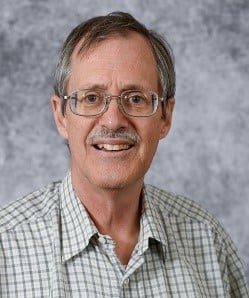 Molded Pulp, Chemical Aspects Webinar – Part 1: Retention and Uniformity
Molded Pulp, Chemical Aspects Webinar – Part 1: Retention and Uniformity
By a process called “molding,” cellulosic fiber suspensions can be formed into a wide variety of shapes, including egg cartons, food service items, and packaging for high-end products. This webinar series focuses on ways in which chemical additives can be used to enhance process efficiency, product attributes, and other aspects of molded pulp manufacturing. This webinar, part 1 of the series, focuses on the efficiency of retention of fine particles during forming of a molded pulp item. Due to the ways in which typical molded pulp items are formed, there is a danger of over-flocculation when using common chemical approaches to increase retention efficiency. The webinar is structured with a lot of pictures to introduce the topic to people learning about the concepts for the first time. There is also an attempt to introduce different options that can be considered by molded pulp manufacturers who may face different constraints and have differing production goals.
A 5 Part Series
|
Molded Pulp, Chemical Aspects
|
Speaker: Martin Hubbe, North Carolina State University
Martin Hubbe, born in the papermaking town of Millinocket, Maine, earned a Masters degree at the Institute of Paper Chemistry (Appleton, WI, 1979), and a Ph.D. in chemistry at Clarkson University (Potsdam, NY, 1984). After a total of 15 years in corporate research (at American Cyanamid Corp., then International Paper), Hubbe joined North Carolina State University in 1998. As Professor and Buckman Distinguished Scientist, Hubbe teaches and conducts research related to the colloidal chemistry of cellulosic materials, with a particular focus on papermaking wet-end chemistry. Hubbe has conducted research related to paper strength, electrokinetic tests, flocculation, and dewatering. He also has chaired TAPPI’s “Introduction to Wet-End Chemistry” short course and conducted university courses for on-campus students and distance-education. The peer-reviewed scientific journal BioResources, which he co-founded and edits with Dr. Lucia, currently publishes more scientific articles than any other publication devoted to the materials science of paper and wood.
Maine, earned a Masters degree at the Institute of Paper Chemistry (Appleton, WI, 1979), and a Ph.D. in chemistry at Clarkson University (Potsdam, NY, 1984). After a total of 15 years in corporate research (at American Cyanamid Corp., then International Paper), Hubbe joined North Carolina State University in 1998. As Professor and Buckman Distinguished Scientist, Hubbe teaches and conducts research related to the colloidal chemistry of cellulosic materials, with a particular focus on papermaking wet-end chemistry. Hubbe has conducted research related to paper strength, electrokinetic tests, flocculation, and dewatering. He also has chaired TAPPI’s “Introduction to Wet-End Chemistry” short course and conducted university courses for on-campus students and distance-education. The peer-reviewed scientific journal BioResources, which he co-founded and edits with Dr. Lucia, currently publishes more scientific articles than any other publication devoted to the materials science of paper and wood.

